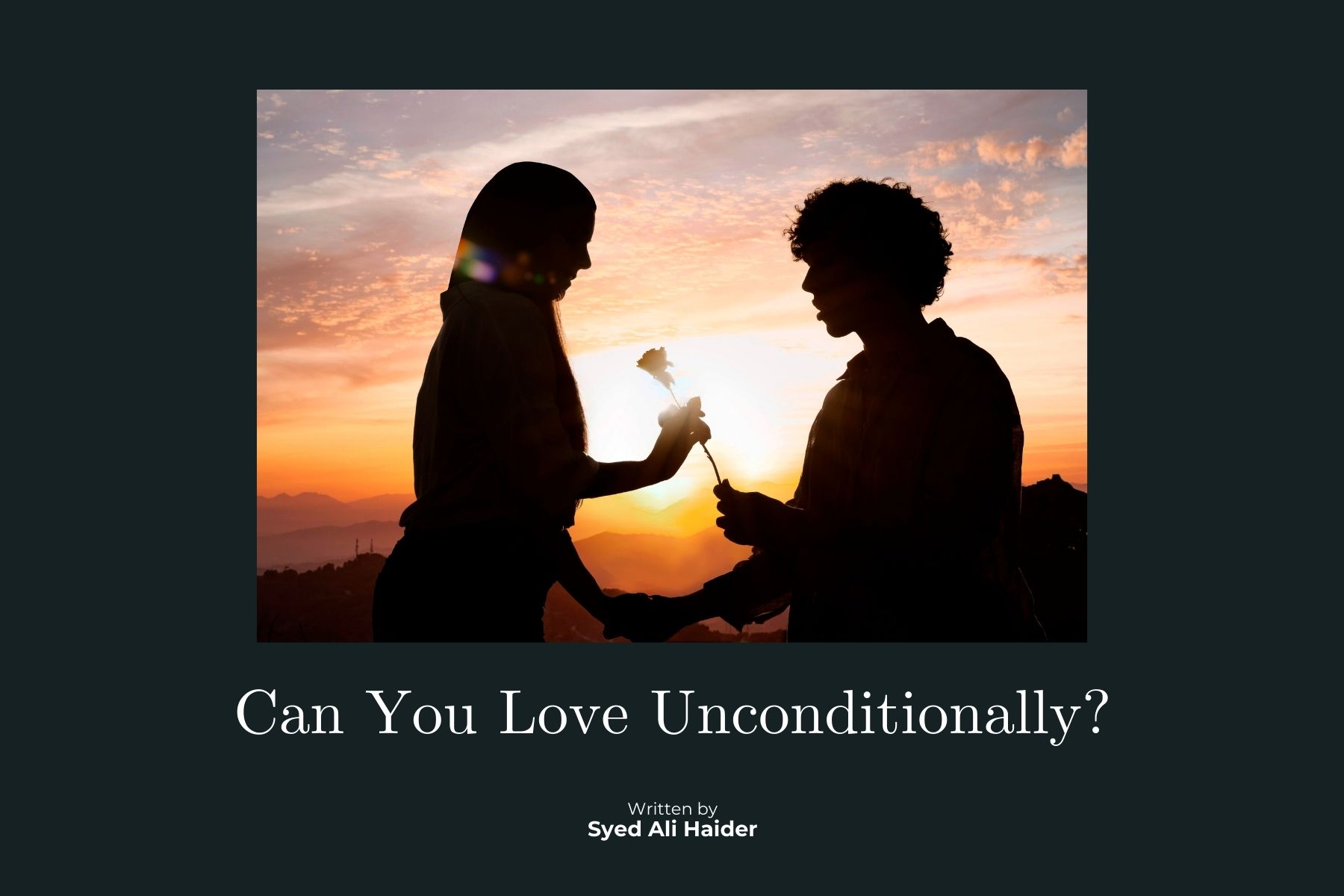Can You Love Unconditionally?
The Rift Between Us
There was a significant rift between us. Both of us were trying to understand our relationship. We believed that as long as we didn’t get what we wanted — something that satisfied our individual needs — we wouldn’t be able to love each other fully.
It became a transactional relationship:
“Give me what I want, and in return, you’ll get my love.”
My wife had the same mindset:
“If you give me what I want, only then will I give you love.”
This kind of setup wasn’t love — it was a conditional exchange, almost like a contract.
Love Based on Reasons and Conditions
– The truth is, many of us fall in love because of certain reasons.
– Maybe you loved your partner because they made you feel special.
– Maybe it was their looks, their kindness, or the way they supported you.
But here’s the reality: those reasons have an expiration date.
The reason you started your first job — is that still the same reason you continue to work today? Most likely not. That reason faded, changed, or evolved. Reasons are temporary. They last a year, two years, maybe ten — but they don’t last forever.
Similarly, in a relationship, you eventually grow out of the initial reasons you fell in love. If love is built on those temporary reasons, the love itself becomes temporary too.
Choosing Unconditional Love
The only way love survives beyond those fading reasons is by making a mutual decision:
“We choose to love each other — unconditionally.”
This means love is no longer a reward for meeting certain expectations. It becomes a gift you give freely, without keeping score.
The Role of Relationship Requirements
Now, let’s be clear — unconditional love doesn’t mean you do nothing and expect your partner to stay. Relationships still have essential requirements:
Loyalty — The foundation of trust.
Trust — Without it, love withers.
Commitment — Showing up for each other, consistently.
Time and Energy — Love needs nurturing to grow.
These are not conditions — they’re the bare minimum a healthy relationship needs to survive and thrive.
Unconditional love doesn’t mean you tolerate neglect, betrayal, or abuse. It means you love from a place of freedom, not from a place of control or trade. Sometimes you have to love them unconditionally and without any reason.
The Danger of Conditional Love
Every time you set a condition for love — “If you do this, I’ll love you more” — you’re not building love. You’re building a negotiation.
Boundaries are essential for self-respect, but when you turn boundaries into ultimatums — “Meet my conditions, or I won’t love you” — love stops being love. It becomes a deal.
Real love doesn’t thrive in transactions. It thrives in understanding, empathy, and acceptance.
Conclusion: Love Without Conditions
Unconditional love isn’t easy — it’s a choice. It’s about saying:
“I love you not because you meet my expectations, but because I choose to love you — even when things aren’t perfect.”
It’s not about loving blindly or sacrificing your self-worth. It’s about loving with the understanding that no one is perfect — and love, real love, goes beyond flaws and failures.
– Love with conditions fades.
– Love without conditions endures.
Would you rather have a love that lasts only as long as your partner meets your expectations, or a love that stands strong even when life doesn’t go as planned?




